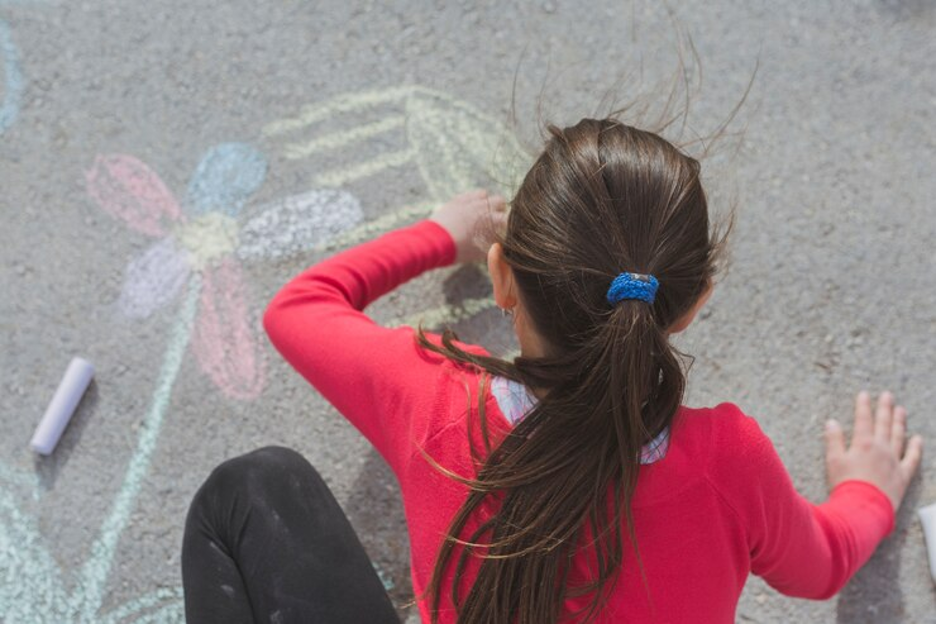Blog — Lillian Brooks
Beyond the Bell: How Parents Can Fuel Learning Outside the Classroom
From the moment school lets out, a new kind of classroom opens—one with messy kitchens, backyard chalkboards, and bedtime books read under the covers. It’s in these spaces that learning often deepens, fueled by rhythm, curiosity, and the subtle power of parental presence. Whether your child is building sentences, solving puzzles, or chasing frogs in the garden, your role isn't to replicate school—it's to layer experience with meaning. Let’s explore how to do just that.
Read Aloud Together
There’s a certain kind of magic in a parent’s voice—especially when it’s narrating the mischief of a storybook fox or the wonder of a distant planet. Reading aloud doesn’t just create bonding moments; it actively builds vocabulary and comprehension. But don’t treat it like a chore or a skill drill. Follow your child’s giggles. Linger on funny words. Re-read the same book five nights in a row if they beg you to. The predictability and sound of your voice weaves safety into complexity. And it teaches them that books are places to return, not just things to finish.
Create With AI, Not Just Watch
For older kids and teens, creativity and technology can be fused in thrilling ways. Using an AI video generator for education, kids can turn stories into short films—transforming language arts into screenwriting, or social studies into documentary making. It’s not just screen time—it’s synthesis. When they animate ideas, they take ownership of them. Don’t worry if the video is glitchy. The point isn’t perfection—it’s practice. Storytelling, sequencing, editing, perspective—those are the real subjects being studied.
Walkie Chalk Sidewalk Stories
Some of the best lessons aren’t found in textbooks—they’re drawn on sidewalks. With something as simple as Walkie Chalk, kids can turn driveways into giant canvases. One moment they’re tracing letters. The next, they’re diagramming their dream playground or building a backyard treasure map. The upright chalk tool gives them independence, physical engagement, and room to dream big. Learning to write becomes an act of movement. Spelling becomes storytelling. And you? You just handed them a tool and made room.
Homework Routine Matters
Evenings can go sideways fast. One lost folder, one skipped snack, and suddenly everyone’s melting. That’s where routine comes in. A consistent after-school rhythm of structured schedules ease focus without turning your living room into a second-grade classroom. Find your groove—maybe it’s 30 minutes of downtime, then a snack, then a calm place to tackle homework. Use timers. Turn off the TV. Keep supplies within reach. The more predictable the flow, the fewer battles you’ll fight. Kids don’t need school at home—they need a home that respects the work school asks of them.
Ask Open‑Ended Questions
“How was your day?” dies on the vine. Try this instead: “What was something weird that happened today?” or “If your math worksheet had a theme song, what would it be?” Questions that spark curiosity through deep questions invite storytelling, pattern recognition, and synthesis—all skills they’re building at school. But these questions work because they’re playful, not probing. You’re not testing them. You’re giving them a stage. And when they talk, don’t interrupt. Let the pauses breathe. That silence? It’s thinking in real time.
Learning Through Games
Game night isn’t just fun—it’s formative. From Uno to Scrabble to made-up board games with glitter glue, games combine fun with executive functions. Kids learn to plan, hold rules in their head, shift strategies, and stay flexible under pressure. That’s the backbone of problem-solving, and it transfers to everything—from math tests to friendship dramas. So skip the flash cards for once. Deal the cards. Roll the dice. Let losing teach them grace and winning teach them generosity.
Parent‑Led STEM at Home
You don’t need a PhD to be your kid’s favorite science teacher. Start simple: mix baking soda and vinegar, grow beans in a jar, or design a paper plane contest. What matters isn’t the content—it’s the habit of tinkering. And with a bit of structure, you can reinforce classroom STEM at home in ways that feel like play. Make a mini weather station. Track moon phases on the fridge. Or let them teach you something they learned. When you show interest, you model that learning never stops.
Supporting your child’s learning doesn’t require reinventing yourself. You’re not trying to be their teacher—you’re just keeping the soil fertile between school bells. You read to them not to prep for a test, but to let language wrap around their brains like a warm blanket. You ask weird questions, make silly sidewalk art, and yes, even let them mess with AI tools—because you know that learning sticks best when it’s wrapped in delight. So let the classroom fade for a while. The bell has rung. Now the real lessons begin.
Discover a new way to play with Walkie Chalk – the perfect outdoor toy for all ages that lets you create big, colorful art without the mess. Join our mailing list for exclusive deals and updates!

Smart Summers: Helping Kids Learn and Have Fun Without Burning Out
(Thank you to our great friend, Lillian Brooks, for her blog post contribution. Enjoy!)
Summer doesn't have to be a three-month learning blackout. It's tempting to let your kids drift into full-on vacation mode with no schedule, no goals, and way too much screen time. But there’s a sweet spot—one where they can stay sharp, build new skills, and still feel like they’re getting a real break. If you're trying to find that balance between educational growth and just letting your kids be kids, you’ve got more options than you think.
Lean Into Their Curiosity
Kids ask questions constantly—about the sky, bugs, how the microwave works, why dogs tilt their heads. Summer’s the perfect time to lean into that curiosity instead of brushing it off. Try keeping a question journal and then choosing one or two to explore each week, either through books, videos, or a field trip to the library or museum. When you encourage their natural wonder, you’re helping them build research and reasoning skills without them even realizing they’re “learning.”
Use Sidewalk Chalk to Blend Learning and Play
Sidewalk chalk from Walkie Chalk isn’t just for hopscotch and doodles. It’s a sneaky and brilliant way to work learning into a playful afternoon outside. You can turn your driveway into a giant spelling board, number maze, or creative writing space—have your child create a short story by drawing it panel by panel like a comic strip. They’ll be using literacy, storytelling, and even fine motor skills, but all they’ll remember is that it was fun and colorful.
Make Reading a Ritual, Not a Requirement
If reading feels like a chore, kids will treat it like one. But if you turn it into something cozy, communal, and low-pressure, they’re far more likely to dive in willingly. Create a daily reading window where everyone in the house grabs a book and just hangs out, or build a blanket fort and have themed reading nights. The key is to model enjoyment—if you look like you’re having fun reading, they’ll want in on that magic too.
Create DIY Flashcards for Better Learning
Making your own flashcards gives you the freedom to tailor the content specifically to what your child needs help with, whether it's tricky math facts or science vocabulary. You can incorporate colors, images, or jokes that make the information stick, and the process of creating the cards together actually boosts memory retention. Once you’ve made them, save the flashcards as PDFs so they’re easy to pull up on a tablet, phone, or laptop whenever a learning moment pops up—click here for more info on converting and printing PDFs.
Let Boredom Do Some Work
You don’t need to schedule every second of their summer. In fact, a little boredom can go a long way. When kids aren’t constantly entertained, their brains start firing in new ways—they build worlds, make up games, dive into new hobbies. By resisting the urge to fill every gap with activities or screens, you’re giving them space to explore self-direction and creative problem-solving.
Build Mini Projects Around What They Love
Instead of dragging your child through a curriculum they don’t care about, build around their interests. If they love animals, create a mini summer project where they “adopt” a species, learn about its habitat, and make a shoebox diorama or fact book. For kids who are into sports, have them calculate stats or design their dream stadium. You’re still hitting educational goals—reading comprehension, math, critical thinking—but you’re doing it in a way that actually matters to them.
Go Local and Explore Hidden Learning Spots
Most towns have more educational opportunities than you might realize. Small science centers, community gardens, historical walking tours—these places are quiet gold mines for hands-on learning. Let your child help plan the outing: look it up, find directions, check opening hours, and make a list of questions to ask while you’re there. It puts them in the driver’s seat, and that ownership makes a difference in how they process what they experience.
Cook Together and Let Math Take the Lead
Cooking is underrated as an educational tool. It’s basically real-life math, science, and reading all rolled into one messy, delicious activity. Let your child help measure ingredients, set timers, and read recipes out loud. Then challenge them to double a recipe or convert teaspoons to tablespoons—it’s not just practical math, it’s math with a clear, rewarding outcome that they’ll want to eat afterward.
No one’s saying you need to run a summer school out of your living room. But keeping a few learning-based traditions in the mix—especially ones that your kids enjoy—means they won’t have to play catch-up when fall hits. More importantly, they’ll start seeing learning not as something confined to a classroom but as something that’s alive in their everyday world. When you get that part right, summer becomes more than a break—it becomes a launchpad.
Discover a new way to play with Walkie Chalk – the innovative sidewalk chalk holder that brings creativity to life for all ages! Join our mailing list for exclusive deals and updates!

Finding Balance: Helping Your Child Navigate a Packed Schedule Without Burnout
Helping Your Child Navigate a Packed Schedule Without Burnout

Encouraging Children to Thrive Through Creative Wellness
Encouraging Children to Thrive Through Creative Wellness
Help Your Child Build a Lifelong Love for Learning With These Simple Strategies
In today’s world, nurturing a child’s enthusiasm for learning is more crucial than ever. As parents, we have the unique opportunity to inspire curiosity and a thirst for knowledge in our children. By modeling a commitment to education and personal growth, we can set a powerful precedent. Whether it’s through pursuing further education ourselves or creating enriching environments at home, our actions speak volumes. Here are a few strategies to try when you’re ready to get started.
Model Your Own Thirst for Knowledge
Fostering a love for learning in your children is a rewarding journey that begins with your own educational pursuits. By embracing your curiosity and enthusiasm for knowledge, you set a powerful example for your children. If you’re interested in learning about human behavior and want access to a wealth of career options, pursuing an online psychology degree offers the flexibility to balance your aspirations with family responsibilities. This not only enhances your career prospects but also demonstrates the value of lifelong learning to your children, encouraging them to embrace curiosity and growth. Take a look at the requirements for a psychology degree online to find out when you can get started.
Create a Sense of Structure
Creating a daily routine that balances structured activities with unstructured time is key to nurturing a child’s passion for learning. Establishing regular wake and sleep times, along with meal rituals, provides a stable framework that promotes healthy habits. Allowing children the freedom to choose activities like reading or drawing during unstructured time fosters independence and creativity. This approach helps them develop a broad skill set while looking forward to learning time rather than dreading it.
Encourage Educational Trips
Regular visits to local museums, libraries, or science centers can significantly nurture your child’s curiosity and love for learning. These outings offer opportunities for children to engage with new concepts in an interactive environment. By interacting with exhibits, children can delve into subjects like electricity and magnetism in a hands-on way, which is often more impactful than traditional classroom learning. Encouraging these experiences can foster a lifelong passion for discovery and learning.
Let Them Help In The Kitchen
Engaging your children in cooking activities is a wonderful way to nurture their love for learning while teaching them essential skills. By involving them in the kitchen, you provide a hands-on experience that is both educational and enjoyable. Measuring ingredients helps children grasp concepts of fractions and volumes, while following a recipe enhances their ability to follow sequential steps. Additionally, cooking introduces them to the science of how ingredients interact, offering a practical application of chemistry concepts. This approach not only equips them with valuable life skills but also fosters a love for learning through everyday activities.
Give Them The Power Of Choice
Empowering children to choose their own books can greatly enhance their engagement and autonomy in reading. When kids select books that align with their interests, reading becomes a delightful activity rather than a chore. Research shows that self-selection of reading materials not only makes the experience more enjoyable but also aligns with their curiosity, fostering a deeper connection with the text. Encouraging children to explore libraries or online platforms to ‘shop’ for books supports their independence and helps develop critical decision-making skills.
Go Digital
To cultivate a lifelong love of reading in your children, consider integrating interactive e-books and audiobooks into their daily routine. These tools can often be found online for free and can transform reading into an engaging and accessible activity, accommodating various reading abilities. By incorporating audio elements like multiple voices and sound effects, stories become more vivid and captivating, enhancing both interest and comprehension. Additionally, using audiobooks at home or in the classroom can introduce children to a broader vocabulary.
Help Your Child Get Involved
Involving your children in community service projects is a meaningful way to cultivate essential life skills while building social connections. By selecting projects that resonate with their interests, children can learn about teamwork and empathy, and also develop a sense of responsibility and leadership. These activities offer a practical context for learning, enabling children to apply classroom knowledge in impactful ways and interact with diverse individuals, which can broaden their social networks and future opportunities.
By embracing these strategies, you can ignite your child’s passion for learning and equip them with the skills and mindset needed for lifelong success. Encouraging curiosity, creativity, and community engagement not only enriches their educational journey but also fosters a love for learning that will last a lifetime.
Discover a new way to play with Walkie Chalk – the perfect outdoor toy for all ages that lets creativity soar without the sore knees or backaches!

Rainy Days, Happy Hearts: Indoor Adventures for Kids
Exploring Activities With Your Children!
Nurturing Healthy Habits: Empowering Kids to Make Positive Choices - By Lillian Brooks
(Guest blog post by our great friend Lillian Brooks - with LearningDisabilities.info which was created to offer information and understanding to parents of children with learning disabilities, as well as adults who are in need of continued support to succeed.
Enjoy!
Creating a healthy lifestyle for our children is incredibly important. As parents and caregivers, your support, knowledge, and resources help kids understand the importance of their health early on. This support is key to developing healthy habits that will last them a lifetime. Your efforts teach them to care for their well-being, ensuring a happier future. This shows just how vital your role is in their healthy development. In this article from Walkie Chalk, we will explore various approaches aimed at supporting the development of healthy habits.
Encouraging the Joy of Movement
The foundation of a healthy lifestyle begins with discovering activities that not only bring pleasure but also promote physical well-being. Encouraging children to sample a variety of pursuits—from sports and dancing to hiking and painting—helps them uncover passions that encourage regular exercise. It’s vital to convey that being active transcends physical health benefits; it also plays a significant role in enhancing mood and managing stress. This holistic approach to physical activity is essential for fostering a lasting appreciation for staying active.
Supporting Outdoor Play
Supporting and encouraging children's outdoor playtime is essential for their physical and mental well-being. Engaging in outdoor activities fosters creativity, promotes physical exercise, and encourages social interaction. Introducing tools like Walkie Chalk adds an extra layer of fun and creativity to their playtime experiences. Walkie Chalk allows children to stand up and draw, unleashing their imagination and enabling them to create vibrant sidewalk art or design imaginative games.
Focus on Education
As adults, we can model the pursuit of dreams by continuing our own education, even amidst busy schedules and responsibilities. Pursuing an online degree offers the flexibility to balance personal and professional commitments while working towards career advancement. For instance, if you're a nurse, obtaining an online RN BSN degree not only enhances your skills but also elevates patient care and opens doors to new opportunities in healthcare. By investing in education, both for ourselves and our children, we empower future generations to reach their full potential and contribute meaningfully to society.
Promoting a Healthy Self-Image
In today’s media-saturated environment, children are bombarded with images and messages that can distort their perception of body image. Combatting this influence requires fostering an atmosphere of body positivity at home. Open discussions about the variety of body shapes and the often unrealistic portrayals in the media are crucial. By encouraging children to accept and love their bodies, you’re helping them build resilience against negative external pressures and promoting a willingness to engage in beneficial activities.
Cultivating a Curiosity for Nutritious Eating
Involving children in the kitchen not only makes meal preparation a shared adventure but also sparks their curiosity about nutritious foods. By engaging them in selecting and preparing meals, you turn nutrition into an exciting, hands-on learning experience. This approach not only demystifies healthy eating but also equips children with the knowledge and skills to make beneficial food choices independently.
Applauding Healthy Lifestyle Decisions
Recognizing and celebrating when children make healthy choices plays a pivotal role in reinforcing these behaviors. Whether opting for a wholesome snack or choosing outdoor play over screen time, your positive reinforcement underscores the value of these decisions. Celebrating these moments encourages a continuous commitment to healthful living, fostering an environment where making healthy choices becomes second nature.
Being Mindful of Caffeine
It's crucial to caution children about the potential dangers of excessive caffeine consumption. While a little caffeine can provide a temporary energy boost, too much can lead to adverse effects like anxiety, insomnia, rapid heart rate, and high blood pressure, which can negatively impact their health and well-being. Encourage them to be mindful of their caffeine intake and to opt for healthier beverage choices. It's helpful to look up the caffeine content of drinks online to make informed decisions about what they consume, avoiding heavily caffeinated options like espresso, particularly for young individuals whose bodies may be more sensitive to its effects.
Enhancing Daily Meals with Nutritional Choices
Actively improving the nutritional content of meals is a pivotal strategy in fostering healthy habits among children. By carefully incorporating a diverse array of fruits, vegetables, whole grains, and lean proteins into daily meals, parents and caregivers can play a crucial role in shaping their children's dietary preferences. It's not just about the variety but also how these nutritious options are presented; making them visually appealing and tasty enhances their attractiveness to young palates.
Furthermore, ensuring that a range of healthy snacks is readily available, while simultaneously reducing the accessibility of processed and sugary treats, naturally guides children towards making healthier eating choices. This approach not only educates them on the importance of good nutrition but also empowers them to develop a lifelong appreciation for foods that nourish their bodies.
The importance of empowering children to make healthy choices cannot be understated. Your unwavering support, guidance, and exemplary behavior are invaluable in creating a supportive environment that celebrates wellness, encourages positive reinforcement, and facilitates personal development. By laying this foundation, you equip your children with the tools necessary for a lifetime of healthful habits, ensuring their well-being now and in the future.
